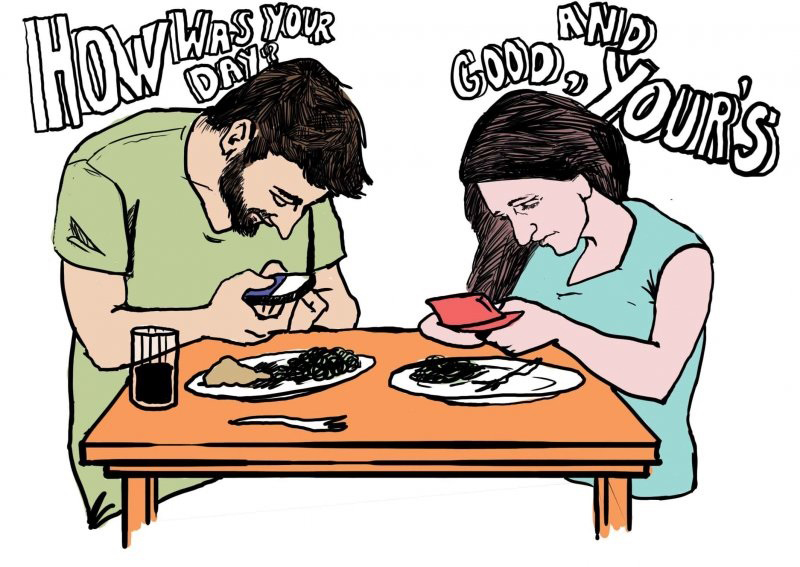 Through access to social media, we can easily connect with our family and friends from all parts of the world. Though we may be far away from our loved ones, we may in fact be more connected through the use of voice and video calls. We can share our thoughts, photos and comments with each other on any and everything and this makes many of us feel up to date and connected. And the biggest plus of it all is that we don’t have to pay because it’s free. Right?
Through access to social media, we can easily connect with our family and friends from all parts of the world. Though we may be far away from our loved ones, we may in fact be more connected through the use of voice and video calls. We can share our thoughts, photos and comments with each other on any and everything and this makes many of us feel up to date and connected. And the biggest plus of it all is that we don’t have to pay because it’s free. Right?
While we ought to thank the likes of MySpace, hi5, Facebook, Twitter, WhatsApp, Instagram, Snapchat and LinkedIn, to name a few, for bringing us together, there is a downside to all of it.
So just what is the dark side of social media?
Addiction: For starters, we don’t need scientific research to tell us how extremely addictive it is. Just stop for a minute and think about the amount of time you spend on your phone scrolling through profiles, looking at an endless stream of statuses, pictures and links. And for some reason, we just can’t stop scrolling. And how about the fact that many of us can no longer sit down to dinner with our families to have a conversation without checking our phones every few minutes. Is it that we are all incapable of exerting some self-control? How could everyone be so hooked on their phones without being able to help themselves? The answer is very straightforward: conditioning and manipulation. The only reason these social media apps are free is because their endgame is to sell and if you aren’t buying, chances are you are the product. Apps like Facebook and Instagram have special algorithms that study a person’s profile and behaviour and predict what that person likes based on the things they post or the kind of photos they like. These algorithms are so advanced that they can predict your mood and make suggestions for you in the form of photos, posts or music. So, no, it isn’t coincidence that you see pictures and posts that engage you, the apps are designed that way to keep you scrolling on and on…
Spying: We have all had that moment where we talk about something random and the next time we pick up our phones, Facebook or Google makes a suggestion for you based on exactly what you were talking about. How many times have you had a conversation about weddings, dogs, vacations or fashion and then boom, pictures and products appear of those very things? Or what about if you’re out at the mall and you meet someone random and the next time you open your Facebook, the person is now a friend suggestion? Scary right? But the truth is that Facebook has come under fire for spying on its users and it’s actually something we inadvertently sign onto. When we download Facebook or any social media app, we are first asked to give the app permission to use our microphone and have access to our cameras and if we want, even our location.
Fake news: Because of social media, people have stopped following real news channels who have their own online platforms and instead opt to read anything someone puts out without seeing the need for verification. Now just imagine fake news being shared and re-shared times a thousand. There is no need to say more especially as we have all heard the saying that “a lie told over and over becomes the truth.” Well, the same applies to the dissemination of fake news. And when this happens, it makes it harder for the genuine news sources to recapture a gullible audience that has already fallen prey to misinformation.
Depression and anxiety: Research has effectively demonstrated how damaging excessive social media can be to our mental health. How so? Well, imagine being bombarded by images of “perfection,” images of rich and famous celebrities living their lavish lifestyles, images of manufactured and artificial beauty, of perfect bodies, perfect lives and pure, unconditional happiness and then you compare what you see (on a daily basis) to your “normal” life, which is lacking in everything that defines perfection. A daily intake of that is likely to affect self-esteem, self-confidence and make a person feel anxious or depressed about not being able to “live up” to a flashy life.
Now that you know there’s a dark side to social media, it might be a good idea to begin to take more control of your life and not let the apps control you as they have been doing. You don’t have to do away with social media but spend less time on those apps and you will see just how much they have been consuming your attention, your energy and your productivity.
Alicia Roopnaraine is a Psychologist at the Georgetown Public Hospital Corporation’s Psychiatric Department. You can send questions or comments to her at aliciaroopnaraine@gmail.com






